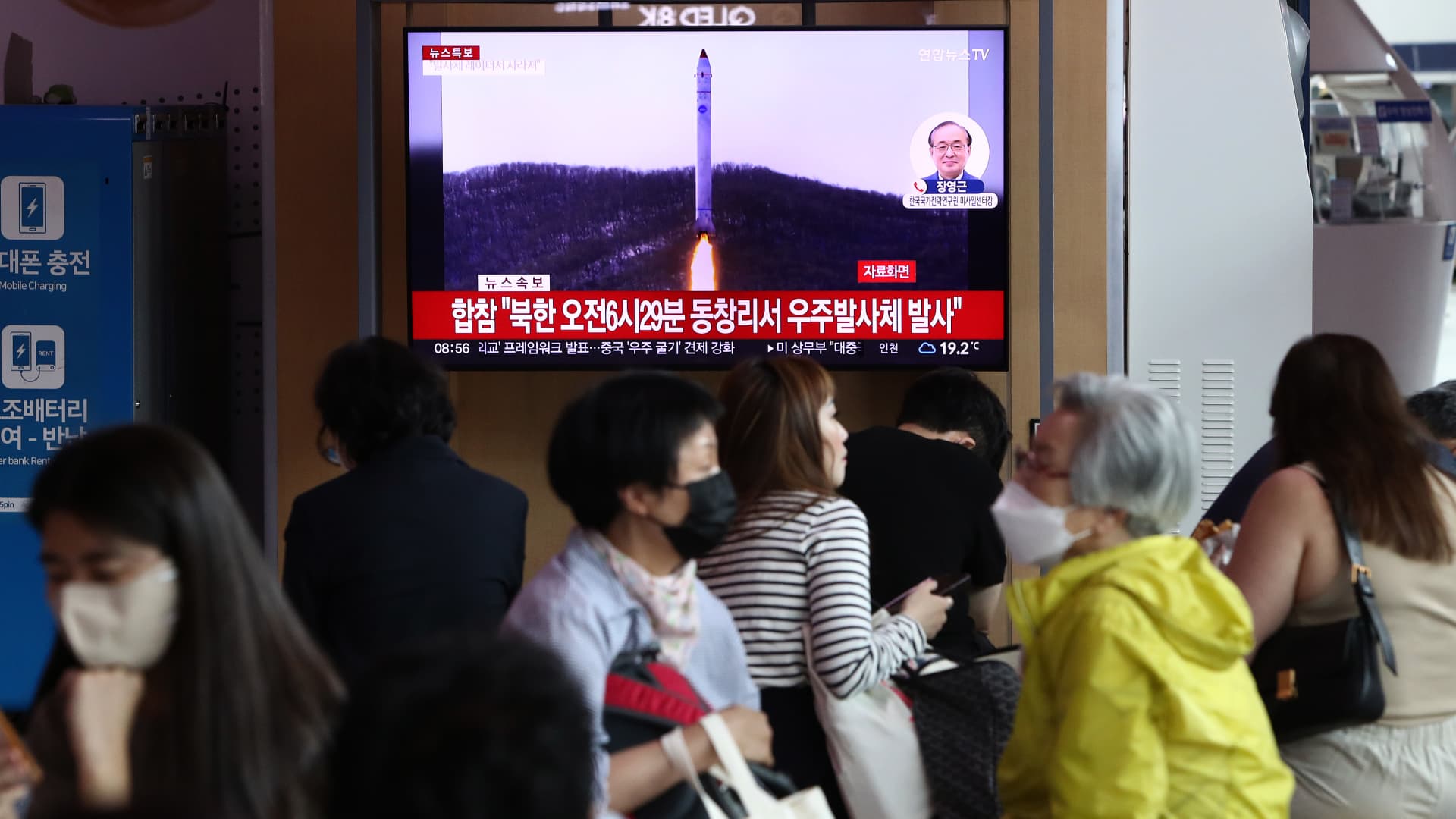The U.S. has been working hard over the past year to engage with North Korea on denuclearization — but Pyongyang has shown no interest, said Victor Cha, senior vice president for Asia and Korea Chair at the Center for Strategic and International Studies.
“We can’t simply assume that because the United States wants to talk, North Korea will come to the table,” Cha told CNBC’s “Squawk Box Asia” on Tuesday.
“The problem right now is that North Korea is not picking up the phone, answering the door, and is showing no interest through a variety of different interlocutors that they are willing to come back to talk [about] their nuclear program right now,” he said.
The two countries have long been sparring over North Korea’s nuclear threats and actions toward South Korea for years.
Early Wednesday, North Korea fired two short-range ballistic missiles eastward, hours after a U.S. nuclear-armed submarine docked in South Korea — the first in decades.
Last week, the reclusive nation launched a long-range ballistic missile toward its eastern waters, in what experts say was likely its developmental Hwasong-18 ICBM — which is more difficult to detect or intercept than the liquid-fuel ones.
It was North Korea’s first long-range missile test since April, and was deemed to be triggered by alleged U.S. spy plane incursions.
South Korean President Yoon Suk Yeol and White House Indo-Pacific Coordinator Kurt Campbell met in Seoul Tuesday for the Nuclear Consultative Group’s (NCG) inaugural meeting.
Cha said the aim of the meeting is for the U.S. to show South Korea a “look inside the nuclear box,” and to garner confidence that the U.S. is committed to defending South Korea against North Korea with its nuclear capabilities.
The meeting comes almost three months after U.S. President Joe Biden and Yoon issued the Washington Declaration.
Under the Washington Declaration, the U.S. will not send nuclear weapons to South Korea, but will instead increase the number of military weapons and vehicles it sends to the country temporarily.
China has voiced concerns that the NCG will potentially lead to an arms race and instability in the Korean peninsula.
But Cha said the U.S. is just being “proactive” rather than “provocative.”
“China doesn’t like anything that the United States does with its allies to make the alliance stronger … The Chinese will always frame this as being threatening to their interest because they would like to dismantle the U.S. alliance system,” he said.
“If the U.S. alliance system were to break down in Asia, this would have huge ramifications not just in the security realm, but also in the economic and financial realm,” Cha added.
Despite their different views, South Korea still strives for a good relationship with China, its most important economic partner.
South Korea wants a relationship that’s based on mutual respect, which means “they don’t want the Chinese dictating to them how it can manage its own sovereign security,” Cha said.





